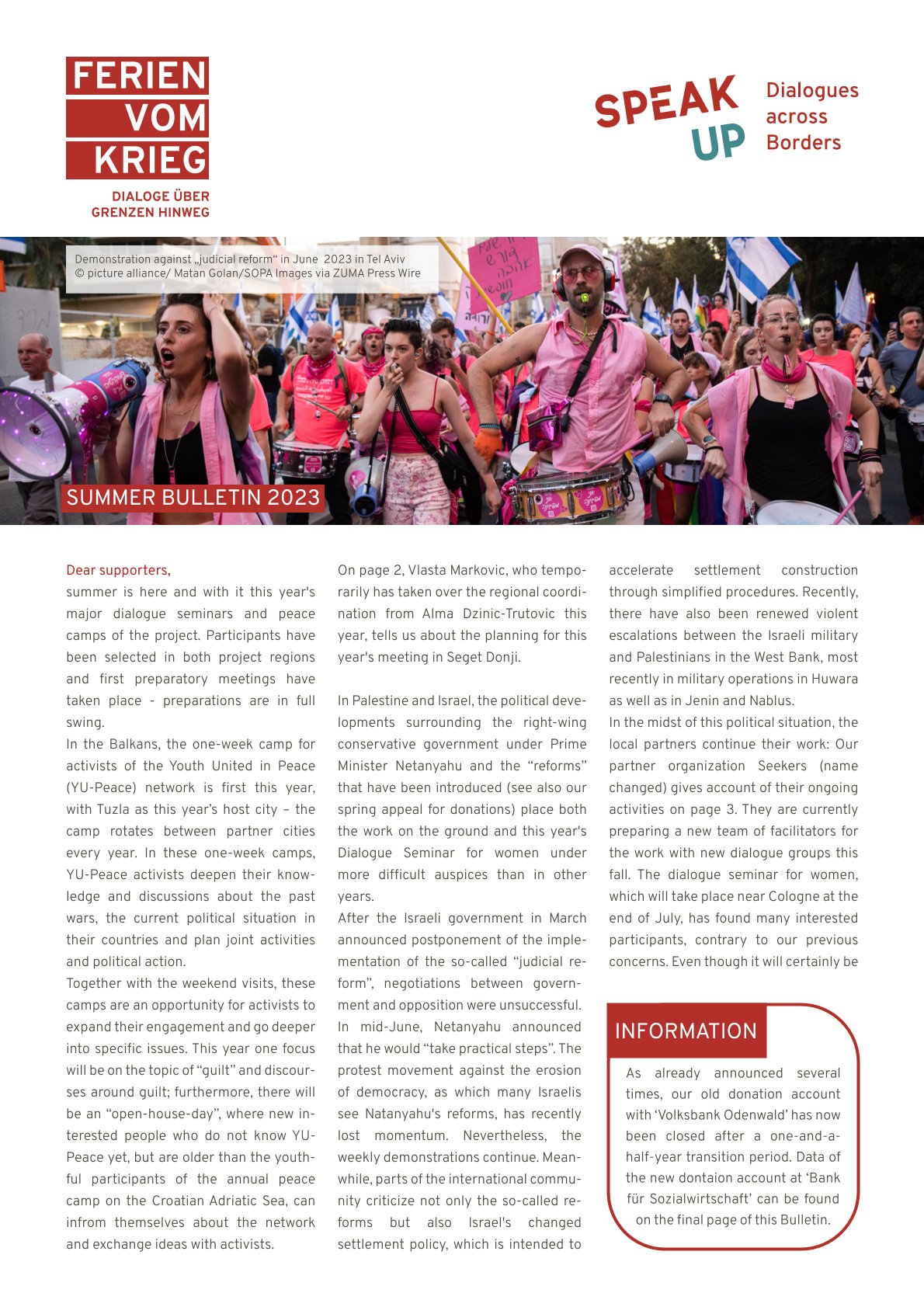
Dear supporters,
summer is here and with it this year’s major dialogue seminars and peace camps of the project. Participants have been selected in both project regions and first preparatory meetings have taken place – preparations are in full swing.
In the Balkans, the one-week camp for activists of the Youth United in Peace (YU-Peace) network is first this year, with Tuzla as this year’s host city – the camp rotates between partner cities every year. In these one-week camps, YU-Peace activists deepen their knowledge and discussions about the past wars, the current political situation in their countries and plan joint activities and political action.
Together with the weekend visits, these camps are an opportunity for activists to expand their engagement and go deeper into specific issues. This year one focus will be on the topic of “guilt” and discourses around guilt; furthermore, there will be an “open-house-day”, where new interested people who do not know YU-Peace yet, but are older than the youthful participants of the annual peace camp on the Croatian Adriatic Sea, can infrom themselves about the network and exchange ideas with activists.
On page 2, Vlasta Markovic, who temporarily has taken over the regional coordination from Alma Dzinic-Trutovic this year, tells us about the planning for this year’s meeting in Seget Donji.
In Palestine and Israel, the political developments surrounding the right-wing conservative government under Prime Minister Netanyahu and the “reforms” that have been introduced (see also our spring appeal for donations) place both the work on the ground and this year’s Dialogue Seminar for women under more difficult auspices than in other years.
After the Israeli government in March announced postponement of the implementation of the so-called “judicial reform”, negotiations between government and opposition were unsuccessful. In mid-June, Netanyahu announced that he would “take practical steps”. The protest movement against the erosion of democracy, as which many Israelis see Natanyahu’s reforms, has recently lost momentum. Nevertheless, the weekly demonstrations continue. Meanwhile, parts of the international community criticize not only the so-called reforms but also Israel’s changed settlement policy, which is intended to accelerate settlement construction through simplified procedures. Recently, there have also been renewed violent escalations between the Israeli military and Palestinians in the West Bank, most recently in military operations in Huwara as well as in Jenin and Nablus.
In the midst of this political situation, the local partners continue their work: Our partner organization Seekers (name changed) gives account of their ongoing activities on page 3. They are currently preparing a new team of facilitators for the work with new dialogue groups this fall. The dialogue seminar for women, which will take place near Cologne at the end of July, has found many interested participants, contrary to our previous concerns. Even though it will certainly be a particularly tense seminar, we are very happy to see so many courageous women motivated for serious political dialogue despite the political developments.
The probably biggest news this summer, however, is that the project is now changing its name to “Speak up – Dialogues across Borders”. We have been sharing with you on the process of finding a new name for the project in our last two annual reports – now it’s official. You can see the new logo on the front page of this Summer Bulletin, we hope you like it as much as we do!
We are currently working on adapting our homepage and social media presences to the new name as well and hope to complete the process over the summer. For more background on reasons for the name change and how this name was chosen, you can find an article on the last page of this year’s Spring Bulletin, which is also available online.
